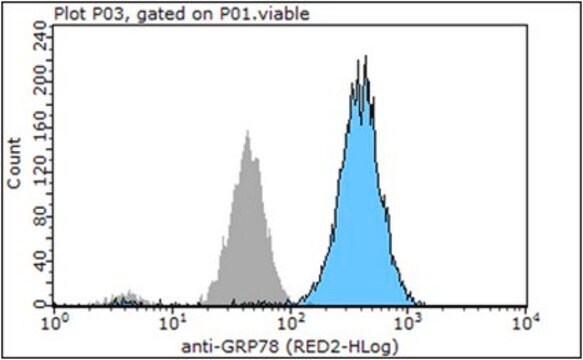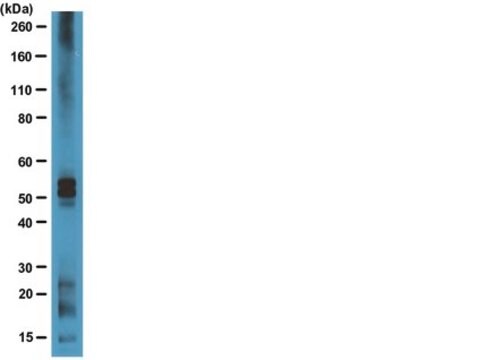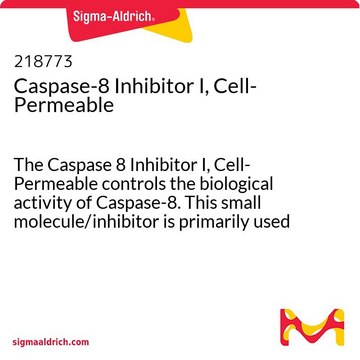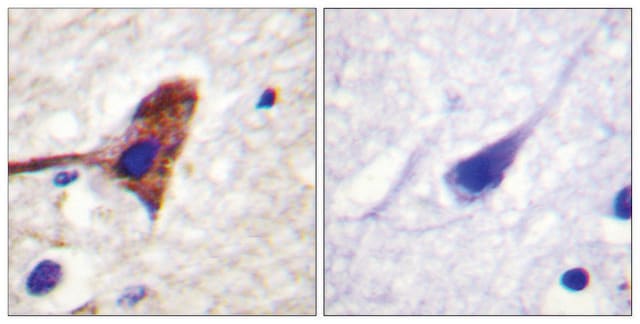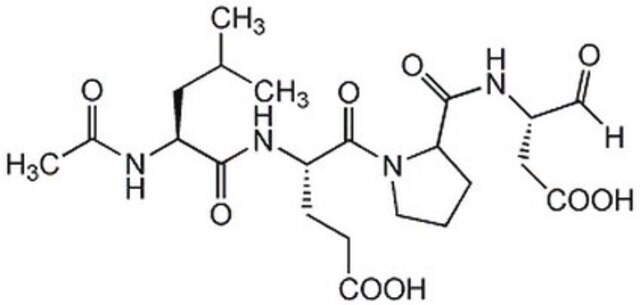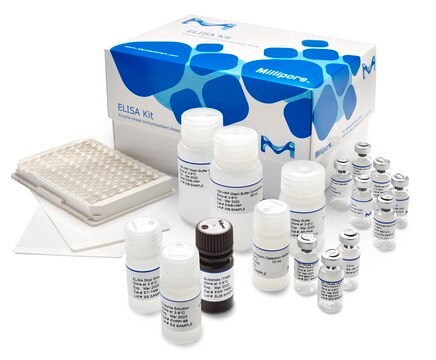MABS1911
Anti-Serpin B9 Antibody, clone 7D8
clone 7D8, from mouse
Synonyme(s) :
Cytoplasmic antiproteinase 3, CAP-3, CAP3, Peptidase inhibitor 9, PI-9
About This Item
Produits recommandés
Source biologique
mouse
Niveau de qualité
Forme d'anticorps
purified immunoglobulin
Type de produit anticorps
primary antibodies
Clone
7D8, monoclonal
Espèces réactives
human
Conditionnement
antibody small pack of 25 μL
Technique(s)
ELISA: suitable
flow cytometry: suitable
immunocytochemistry: suitable
immunofluorescence: suitable
immunohistochemistry: suitable (paraffin)
western blot: suitable
Isotype
IgG1κ
Numéro d'accès NCBI
Numéro d'accès UniProt
Modification post-traductionnelle de la cible
unmodified
Informations sur le gène
human ... SERPINB9(5272)
Description générale
Spécificité
Immunogène
Application
Flow Cytometry Analysis: A representative lot detected Serpin B9 in Flow Cytometry applications (Hirst, C.E., et. al. (2003). J Immunol. 170(2):805-15).
Immunocytochemistry Analysis: A representative lot detected Serpin B9 in Immunocytochemistry applications (Hirst, C.E., et. al. (2003). J Immunol. 170(2):805-15).
Immunofluorescence Analysis: A representative lot detected Serpin B9 in Immunofluorescence applications (Hirst, C.E., et. al. (2003). J Immunol. 170(2):805-15).
Immunohistochemistry Analysis: A representative lot detected Serpin B9 in Immunohistochemistry applications (Hirst, C.E., et. al. (2001). Mol Hum Peprod. 7(12):1133-42).
Western Blotting Analysis: A 1:100 dilution from a representative lot detected Serpin B9 in YT and Jurkat cell lysates (Courtesy of Prof. Phillip Bird, Ph.D., Monash University, Victoria Australia).
Western Blotting Analysis: A representative lot detected Serpin B9 in Western Blotting applications (Hirst, C.E., et. al. (2001). Mol Hum Peprod. 7(12):1133-42; Hirst, C.E., et. al. (2003). J Immunol. 170(2):805-15; Mangan, M.S., et. al. (2015). J Biol Chem. 291(7):3626-38).
Immunocytochemistry Analysis: A representative lot detected Serpin B9 in COS-1 cells (Courtesy of Prof. Phillip Bird, Ph.D., Monash University, Victoria Australia).
Inflammation & Immunology
Qualité
Immunohistochemistry Analysis: A 1:50 dilution of this antibody detected Serpin B9 in human spleen tissue sections.
Description de la cible
Forme physique
Stockage et stabilité
Autres remarques
Clause de non-responsabilité
Vous ne trouvez pas le bon produit ?
Essayez notre Outil de sélection de produits.
Code de la classe de stockage
12 - Non Combustible Liquids
Classe de danger pour l'eau (WGK)
WGK 1
Point d'éclair (°F)
Not applicable
Point d'éclair (°C)
Not applicable
Certificats d'analyse (COA)
Recherchez un Certificats d'analyse (COA) en saisissant le numéro de lot du produit. Les numéros de lot figurent sur l'étiquette du produit après les mots "Lot" ou "Batch".
Déjà en possession de ce produit ?
Retrouvez la documentation relative aux produits que vous avez récemment achetés dans la Bibliothèque de documents.
Notre équipe de scientifiques dispose d'une expérience dans tous les secteurs de la recherche, notamment en sciences de la vie, science des matériaux, synthèse chimique, chromatographie, analyse et dans de nombreux autres domaines..
Contacter notre Service technique